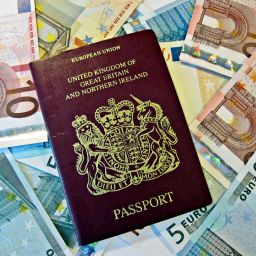You might have seen us celebrating the UK government’s decision last week to require British overseas territories to introduce public registers of beneficial ownership. This means that companies based in places like Bermuda, the Cayman Islands, Turks and Caicos and the British Virgin Islands will soon have to reveal the identity of the real individuals behind companies — the beneficial owners.
We’ve called this “a major victory in the fight against cross-border corruption”.
You might be wondering: why do we care so much about registers of beneficial ownership?
Information is all
Well, in order to effectively fight money laundering, corruption and tax evasion, authorities need to be able to trace money. This means having timely access to sufficient, accurate and up-to-date information about companies and the people who ultimately own and benefit from them.
Obstacles to accessing this information or delays in transferring it to authorities make it harder to follow the money back to its source. This increases the likelihood that people who have engaged in corrupt or illegal acts will get away with their crimes.
Public registers of beneficial ownership make getting this information a lot easier.
Here’s why.
Company registers and bank records often aren’t enough
When conducting investigations into company ownership, authorities often rely on company registers and information recorded by financial institutions. Our new research into beneficial ownership transparency in G20 member countries and guest countries found that in 15 of the 23 countries assessed, investigators rely almost solely on the information collected by financial institutions and so-called “designated non-financial businesses and professions” (or DNFPBs), such as lawyers and accountants, to identify the beneficial owner of companies.
But these sources often aren’t enough, and investigators that depend on them alone face significant obstacles when it comes to identifying, tracking and tracing illicit activities.
Complex webs of ownership
Company registers around the world record a range of information, but most do not actually include beneficial ownership information. Some of them (such as those in the state of Delaware in the United States) do not even include information on shareholders.
Even with information on shareholders, authorities will not necessarily be able to fully understand the control and ownership structure of a company and identify the individuals profiting from it. For example, the shareholders might be another domestic legal entity, a foreign company, or even a nominee — that it, someone who “rents” their name but acts according to instructions of the real owner, who chooses to remain hidden.
If the shareholder of a company is a foreign company registered offshore, it might take investigators years to find out who the the real beneficial owner is. In that case, they would need to formally request information and depend on the cooperation of officials in the jurisdiction where the company is registered. Worse, while all this is going on, the company might be tipped off that is under investigation and have time to move its assets elsewhere.
Banks can complicate things further
Relying on information collected by financial institutions and DNFBPs brings its own set of challenges.
In some countries, authorities can only access an online database that shows who holds an account at a particular financial institution after receiving a court order. In other countries, authorities need to know the name of the bank holding a company’s accounts in order to request information — and finding the bank’s name is not always straightforward.
A further issue is that financial institutions and DNFBPs often record the beneficial ownership information exactly as their customers provide it. This information might not necessarily be accurate, or the bank could be complicit in recording false information, as many recent corruption cases have demonstrated.
A company might also be incorporated in one place and have bank accounts in another, which makes it harder for the authorities to access information.
Research by Transparency International UK shows that 90 per cent of UK firms involved in a scheme that moved £63 billion of illicit wealth out of Russia had bank accounts in Latvia or Estonia. In the Azerbaijani Laundromat scheme, shell companies incorporated in the United Kingdom but owned by other offshore companies used bank accounts at the Estonian branch of the Danske Bank to disguise payments allegedly made by Azerbaijani officials to launder the country’s reputation in Europe.
Registers could solve these problems — but verification remains an issue
A public, central register is the most effective and practical way to record information on beneficial ownership and facilitate access for the authorities. A central register also supports the harmonisation of the country’s legal framework, avoiding double standards, and facilitates cross-border investigations and international cooperation.
Even with the adoption of beneficial ownership registers, however, the reliability of information is likely to remain an issue. The authorities responsible for maintaining such registers often do not have the capacity or the mandate to verify the information provided. Registers should be adequately resourced so they can verify the accuracy of information provided by companies. Making the register publicly available can help minimise the risk of false information, as external watchdogs and even obliged entities (financial institutions and DNFBPs) could help monitor the information provided.
Progress on the horizon
The 5th EU Anti-Money Laundering Directive has already made a public register a requirement for EU countries. Ghana, Nigeria and Ukraine have also adopted public central beneficial ownership registers. The UK decided to introduce one in 2015. This will soon also be the new reality in the UK Overseas Territories.
Now, it is time for all other countries to follow suit.
Taking a step back: Why do we care so much about public registers of beneficial ownership?

